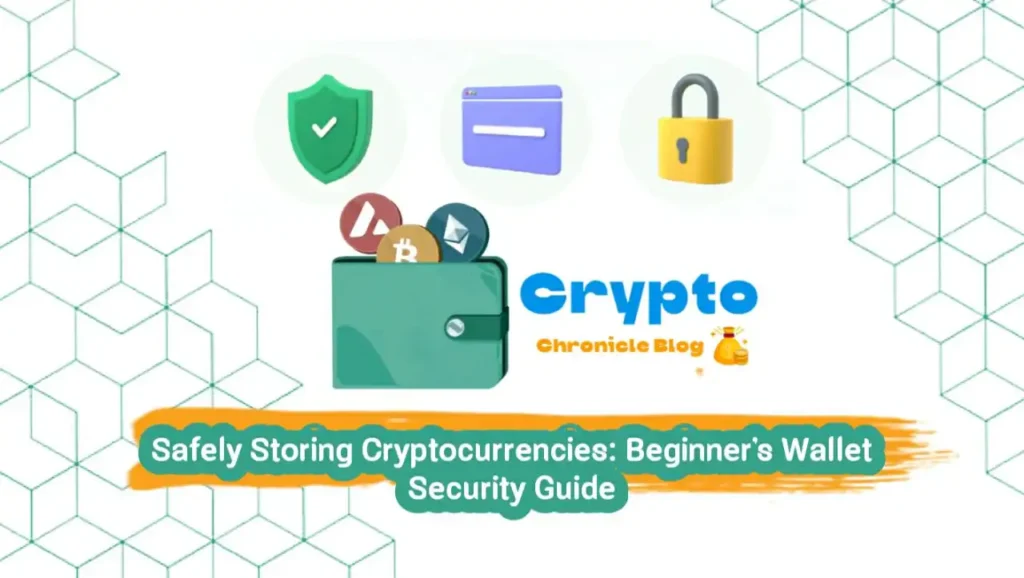The advent of cryptocurrencies has marked a significant shift in the landscape of financial transactions, fundamentally altering the traditional notions of storing and transferring value. Unlike conventional fiat currencies, cryptocurrencies are digital assets operating on decentralized networks, offering unparalleled security and transparency. However, this decentralized nature also places the onus of safeguarding assets squarely on the users’ shoulders.
In this extensive guide, we embark on a journey to explore the intricacies of cryptocurrency wallets, delineating the diverse array of options available and elucidating the best practices necessary for fortifying the security of your digital assets.
Understanding Cryptocurrency Wallets:
Cryptocurrency wallets serve as digital repositories for storing, sending, and receiving digital currencies. These wallets can be broadly categorized into two main types: custodial and non-custodial.
- Custodial Wallets: Custodial wallets are managed by third-party service providers such as Coinbase or Binance. These platforms assume responsibility for wallet security and maintenance, providing convenience, particularly for novice users. However, users relinquish control over their private keys, potentially exposing them to security vulnerabilities.
- Non-Custodial Wallets: Non-custodial wallets empower users with complete control over their private keys, thereby enhancing security. These wallets manifest in various forms, including software wallets, hardware wallets, and paper wallets.
- Software Wallets: Software applications installable on computers or mobile devices. While convenient, they are susceptible to malware and hacking.
- Hardware Wallets: Physical devices storing private keys offline, considered the pinnacle of security albeit being costlier and more complex.
- Paper Wallets: Private keys printed on physical paper, offering robust security but susceptible to loss or damage.
Best Practices for Wallet Security:
Irrespective of the chosen wallet type, adherence to stringent security measures is paramount to safeguarding digital assets effectively:
- Implement strong passwords: Utilize complex passwords comprising a combination of uppercase and lowercase letters, numbers, and special characters. Avoid using easily guessable passwords or reusing passwords across multiple platforms.
- Enable two-factor authentication (2FA): Two-factor authentication adds an extra layer of security by requiring users to provide a secondary form of verification, typically a code sent to their mobile device or email address, in addition to their password.
- Safeguard private keys: Treat private keys with the utmost care and confidentiality. Store them securely offline, preferably in a hardware wallet or encrypted storage device. Refrain from sharing private keys with anyone under any circumstances.
- Exercise caution: Be vigilant against phishing scams, malware attacks, and fraudulent schemes aimed at compromising your wallet security. Verify the authenticity of websites and applications before entering sensitive information or making transactions.
- Regularly update software: Ensure that your wallet software and any associated applications are up to date with the latest security patches and enhancements. Regular updates help mitigate vulnerabilities and protect against emerging threats.
- Utilize reputable platforms: Only use reputable cryptocurrency exchanges and wallet providers with a proven track record of security and reliability. Conduct thorough research and read user reviews before entrusting your funds to any platform.
- Practice backup and recovery: Implement robust backup and recovery procedures to mitigate the risk of data loss or wallet compromise. Maintain multiple copies of your private keys and recovery phrases in secure, offline locations.
Conclusion
Securing cryptocurrencies is a critical endeavor for individuals seeking to invest in digital assets securely. By understanding the diverse range of cryptocurrency wallets available and adhering to the prescribed best practices, users can fortify their defenses against potential threats and safeguard their financial assets effectively.
Additional Insights:
- Importance of choosing a reputable wallet provider: Emphasize the significance of selecting a trusted and reputable wallet provider renowned for its stringent security protocols, transparent practices, and commitment to customer protection.
- Comparison of wallet features: Delve into the various features and functionalities offered by different types of wallets, enabling users to make informed decisions based on their specific requirements, preferences, and risk tolerance.
- Pros and cons analysis: Provide a comprehensive overview of the advantages and disadvantages associated with each type of wallet, helping users weigh their options and choose the most suitable solution for their needs.
- Setup and usage guidelines: Offer step-by-step guidance on setting up and using cryptocurrency wallets, including account creation, key generation, transaction execution, and best practices for day-to-day management.
- Troubleshooting tips: Address common issues and challenges encountered by cryptocurrency wallet users, such as transaction errors, wallet synchronization issues, and security concerns, offering practical solutions and troubleshooting tips to resolve them effectively.
By incorporating these additional insights, readers can enhance their understanding of cryptocurrency wallets, elevate their security posture, and navigate the complex landscape of digital asset management with confidence and proficiency.
References:
- Bitcoin Wallets: A Beginner’s Guide: https://bitcoin.org/en/choose-your-wallet
- Ethereum Wallets: A Beginner’s Guide: https://ethereum.org/en/wallets/
- Best Cryptocurrency Wallets of [Current Year]: https://money.com/best-crypto-wallets/
As the cryptocurrency landscape continues to evolve, staying informed and proactive about wallet security remains paramount to safeguarding your digital assets effectively.




